Budget 2016: 'We should all be worried', warns IFS
Leading think-tank criticises economic policies that will 'lower wages and living standards'
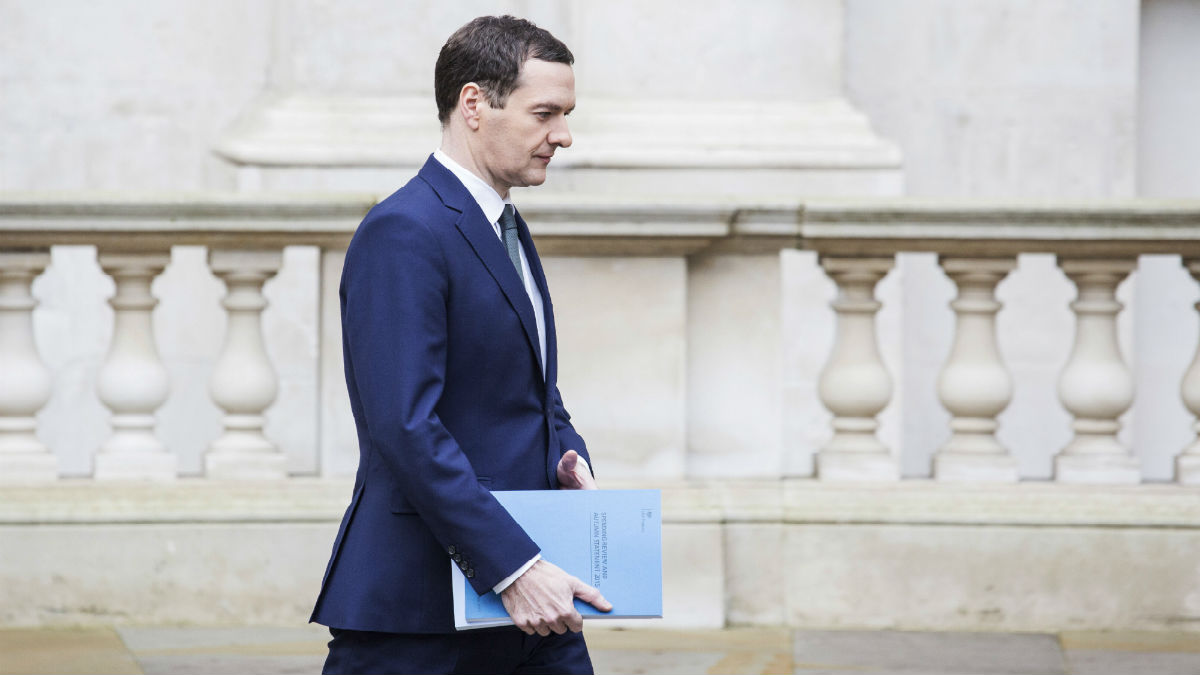
A free daily email with the biggest news stories of the day – and the best features from TheWeek.com
You are now subscribed
Your newsletter sign-up was successful
If the forecasts for economic growth and UK productivity presented in the Budget are accurate, then "we should all be very worried", the Institute for Fiscal Studies has said.
"This will lead to lower wages and living standards, not just lower tax revenues for the Treasury," the think-tank said in its routine review of the policy package.
The IFS has been a thorn in the side of Chancellor George Osborne in the past by being highly critical of his plans, including in an influential assessment of the eventually-dropped tax credit cuts. It was equally scathing this time around.
The Week
Escape your echo chamber. Get the facts behind the news, plus analysis from multiple perspectives.

Sign up for The Week's Free Newsletters
From our morning news briefing to a weekly Good News Newsletter, get the best of The Week delivered directly to your inbox.
From our morning news briefing to a weekly Good News Newsletter, get the best of The Week delivered directly to your inbox.
Blaming a global economic malaise that is hitting growth around the world, Osborne was forced on Wednesday to reveal new forecasts for growth of just two per cent for this year and no more than 2.1 per cent for the remainder of this parliament.
As a result, he will cut £3.5bn more from government spending in 2018 and only return the government finances to surplus in a late swing in the year before the next general election.
But IFS director Paul Johnson said the balanced figures were achieved by shifting money around and that Osborne would not have "wiggle room" to do this again. The organisation gave a 50 per cent chance on growth coming in below forecasts and more real spending cuts or tax rises being needed to hit the surplus target.
The group was also broadly critical of Osborne's new tax cuts, which lift the personal allowance to £11,500 and the threshold for higher-rate 40 per cent tax to £45,000 from next year, saying they benefit the well-off.
A free daily email with the biggest news stories of the day – and the best features from TheWeek.com
Stuart Adams, an economist at the IFS, told the Financial Times that as 43 per cent of workers already fall below the threshold for income tax, this was "very much a giveaway to the better off". It is only at £100,000 of annual earnings that allowances taper off and individuals cease to gain from the changes.
Cuts to capital gains taxes are also seen as aiding richer people who are more likely to have investments.
Osborne has argued that more than three million low-paid people are no longer paying income tax and that a national living wage coming in April, which will hit £9 an hour by 2020, will begin to boost earnings and living standards for workers.
Budget 2016: Five winners and losers after Osborne's changes
17 March
George Osborne delivered his eight Budget amid a steep downgrade in fiscal forecasts, leaving him with no option but to fund any giveaways with tax and spending hits elsewhere.
Here are five winners and losers from the tax merry-go-round.
WINNERS
1. Lower-paid and middle-class earners (and the well-off)
Osborne is going to go some way to fulfilling manifesto pledges for a big tax cut for lower and middle-income workers from next year, raising the tax-free personal allowance to £11,500 and the higher-rate 40 per cent tax band to £45,000. This will mean more of the lowest-paid pay no income tax and will begin to reverse a long-term trend of more middle-earners falling into the higher-rate tax band.
It's being pointed out, however, in publications ranging from the Daily Mirror to the Daily Telegraph, that the well-off will also do very well out of all this, up to an income level of £100,000 when personal allowances taper off. Richer people are also the most likely to have investments and so gain from a big cut in higher-rate capital gains tax, which drops from 28 to 20 per cent.
2. Savers, especially younger renters
Pitching the broader theme of the Budget as helping the "next generation", Osborne announced a new Lifetime Isa that will benefit the young and those who don't yet own a home. If under-40s put aside £4,000 a year, they can get a government bonus of £1,000 to use towards a first property purchase. If they leave it untouched, it will provide a boost to retirement income.
Everyone who puts money away for the future will also benefit from a big increase in the Isa limit when the new accounts are introduced in 2017. Savers will be able to bank £20,000 a year.
3. Small businesses
Here was the big pitch to the Conservatives' core heartlands, middle-class small business owners. The move was to give in to demands for revisions to onerous and outmoded business rates, lifting 600,000 companies with premises out of the tax altogether and reducing the levy on 250,000 others.
That's not all, though, as the Chancellor lowered the corporation tax rate, removed the "slab structure" of commercial property stamp duty and offered a new £1,000 tax allowance for "micro-entrepreneurs" selling online through the likes of Amazon or eBay.
4. Drivers and (some) drinkers
It had been widely expected that Osborne would hit petrol and alcohol to raise revenue, with the former especially being politically easier due to the wider fall in oil prices already reducing the cost of running a car. But he's resisted the temptation and instead frozen taxes on petrol, beer and whisky
If your favourite tipple is wine or you smoke, however, you're going to see your indirect taxes rise – with tobacco going up at two per cent on top of inflation.
5. North Sea oil firms
The Chancellor also responded to calls from firms in the North Sea offshore oil sector to reduce their tax burden in the face of the oil price slump. He's halved a supplementary charge levied on offshore fields and completely abolished a 30 per cent petroleum revenue tax. It's a move that may appeal to Scottish voters.
LOSERS
1. Some big multinationals
The giveaway to small businesses is being funded largely through a renewed crackdown on multinationals exploiting tax loopholes, which Osborne reckons will eventually raise £9bn a year. Firms that take on debt to reduce their profit and consequently their tax bill will be hit, while the likes of Amazon and Ebay are to be made responsible for their underlying sellers' VAT avoidance.
Other tax avoiders, such as those who earn through personal service companies and then pay themselves with company dividends at lower rates, were also targeted.
2. Sugary drinks industry
Another of the big headline measures was a tax on sugary drinks, which amounted to a U-turn on previous Tory policy and was the subject of accusations that the Chancellor had used gimmicks to detract from dire economist forecasts. It'll hit fizzy drink-makers whose products contain high levels of sugar and customers, as they pass this hike on.
The tax will be levied at drinks with more than five grammes of sugar per 100 millilitres, with a higher charge on those with more than eight grammes. It's coming in two years, to give businesses time to change their products, and is expected to initially raise £520m that will be used for schools initiatives such as sporting activities.
3. Buy-to-let investors
Having been hit with a cut to their mortgage interest relief (coming in 2017) and then a stamp duty hike in last summer's Budget and the Autumn Statement, private landlords were indirectly singled out again. They are being excluded from the cut in capital gains tax, meaning they'll be paying eight per cent more tax on gains from a property sale than other investors.
4. Those with insurance
Having tied his hands on the main tax rates, which he cannot increase during this parliament, Osborne, like Labour's Gordon Brown before him, has resorted to stealth taxes. He introduced a 9.5 per cent tax on insurance premiums last year and increased this by 0.5 per cent yesterday, less than some had expected.
Of course, most consumers have some form of insurance on their car, home or pet so this hits everyone and, like most indirect taxes, in proportional terms, it is regressive and hits the lower-paid harder than the well-off.
5. Economists
The downgrades, taking growth down to two per cent this year from 2.4 per cent previously and limiting rises to 2.1 per cent for the next four years, were far worse than expected. And given that the last set of predictions only came in November, it was an abject lessen in the dangers of relying on very speculative forecasts.
Osborne has now back-loaded his fiscal consolidation and pencilled in £3.5bn of additional annual government spending cuts by the end of the parliament, contributing to a massive turnaround in his fiscal fortunes from an over-target deficit to a £10.4bn surplus in the year before the next general election. Let's hope he has got his own sums right.
Budget 2016: Osborne hands tax cuts to workers and businesses
16 March
George Osborne pledged tax cuts for businesses and both low-paid and middle class workers as he pitched his eighth Budget as being one designed to boost "the next generation".
Measures included increasing the lowest threshold for income tax to £11,500 from next year, the latest step in his previously announced plans to have the level reach £12,500. He also unveiled an increase in the 40 per cent higher-rate tax threshold to £45,000.
For businesses, there was a further cut in the main rate of corporation tax to 17 per cent at the end of this parliament - it had been set to fall to 18 per cent – while small enterprises with premises will benefit from a headline-grabbing cut to business rates, removing 600,000 from the levy altogether. There were also other allowances for "micro-entrepreneurs" online.
Cuts and tax rises
This all needs to be paid for somehow, especially at a time of slowing growth and tax receipts, so in the business arena, there will be around £9bn in new tax-avoidance measures, including a clampdown on the ability of businesses to lower their tax bills by offsetting borrowing costs against profits.There will be tax rises elsewhere, too, with the "insurance premium" introduced last year - a "stealth tax" that increases policy premiums for consumers - going up by another 0.5 per cent. There was also a U-turn on previous policy with the introduction of a sugar tax. Notably, however, predictions that Osborne would resort to low-hanging fruit such as petrol and alcohol taxes to balance the books were proved wrong. Both have been frozen again.Critically, to ensure his target is met to have the public finances in balance by the end of this parliament, the Chancellor has announced another £3.5bn in government spending cuts. These are uncosted, so there's more than a hint of alchemy in the air, but Osborne heralded that it means the surplus of more than £10bn in 2019-20 is protected.
Growth downgraded
The Chancellor is emphasising his surplus target because he's missed another of his own fiscal rules, revealing that borrowing and debt as a proportion of GDP has risen this year. This is because of the revisions to nominal GDP, Osborne claimed, adding that in cash terms, he is ahead of forecasts from November.He was also forced to admit that growth prospects for the UK economy are far worse than expected. The independent Office for Budget Responsibility predicts growth of two per cent this year, less than the 2.2 per cent expected by the Bank of England, as productivity in particular has slumped. Growth was also downgraded against previous assumptions for every year of the parliament to come.Osborne instead focused on the positives of the economy in relation to its comparative position globally, saying: "Today I report on an economy doing better than any other developed economy in the world". In addition, he honed in on strong unemployment figures.In data published ahead of the Budget this morning, the number of people out of work was revealed to have fallen 28,000 to 1.68 million between November and January. The rate remains at 5.1 per cent, which the BBC notes is a ten-year low, while the rate of employment is at a joint record high of 31.4 million people.
Other measures
One of the big announcements Osborne hopes people will focus on tomorrow is a new "Lifetime Isa" to be launched for those who would prefer flexibility in their savings. It will not replace pensions for younger people as had been feared - such a move would have effectively removed the tax-free lump sum in retirement.
Under the new scheme, under-40s who save up to £4,000 a year will earn a government bonus of 25 per cent, up to the age of 50. This money can be used for a house or to provide a pension income, with a consultation to investigate the possibility of allowing money to be withdrawn and replaced later without forfeiting the government payout.
Elsewhere, as had been leaked beforehand, there was new money for schools to open later for extra-curricular activities if they wish and plans to provide funding to make all schools academies - or put them on the road to being so - by 2020.
There was also funding provided for a range of local initiatives as Osborne continued to trumpet his devolution credentials, with money in particular brought forward for infrastructure projects such as a trans-pennine railway and a number of road upgrades across the north.
'Dignity for the disabled'
In his response, Jeremy Corbyn slammed the government for a Budget that he said is the result of "failures" over the past six years.
The Labour leader said cuts had fallen hardest on the poor, with women being affected more than men, and he hit out strongly at the changes to disability benefits that were voted through this week. The Chancellor should prioritise "dignity for the disabled" instead of cuts to businesses taxes, he said.
Osborne had earlier said his plans were fair as the top one per cent of earners are paying a higher proportion of taxes than ever, at 28 per cent, and that statistics show rates of child and pensioner poverty were falling.
-
 The mystery of flight MH370
The mystery of flight MH370The Explainer In 2014, the passenger plane vanished without trace. Twelve years on, a new operation is under way to find the wreckage of the doomed airliner
-
 5 royally funny cartoons about the former prince Andrew’s arrest
5 royally funny cartoons about the former prince Andrew’s arrestCartoons Artists take on falling from grace, kingly manners, and more
-
 The identical twins derailing a French murder trial
The identical twins derailing a French murder trialUnder The Radar Police are unable to tell which suspect’s DNA is on the weapon
-
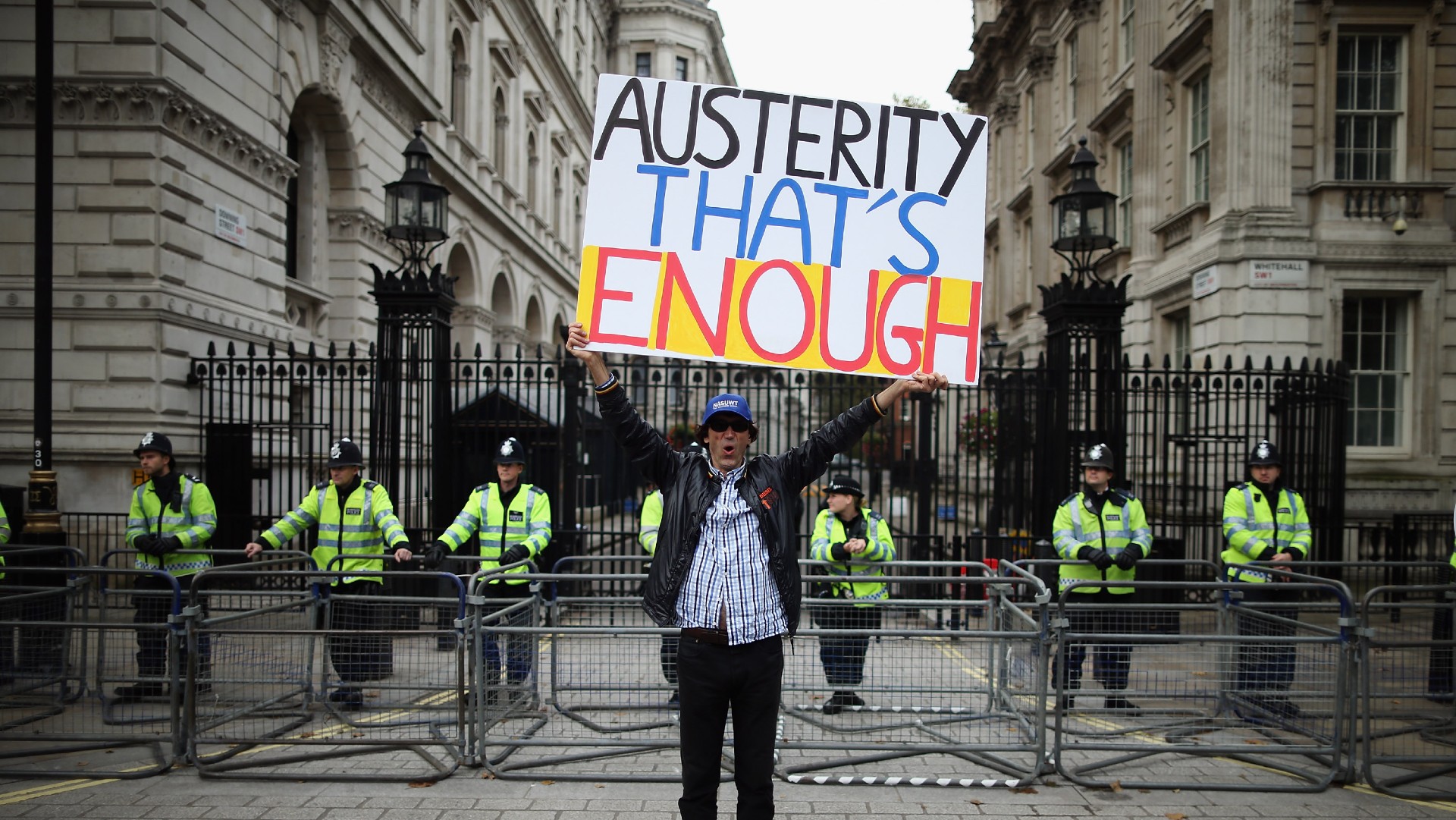 Do Tory tax cuts herald return of austerity?
Do Tory tax cuts herald return of austerity?Today's Big Question Chancellor U-turns on scrapping top rate tax but urges ministers to make public spending cuts
-
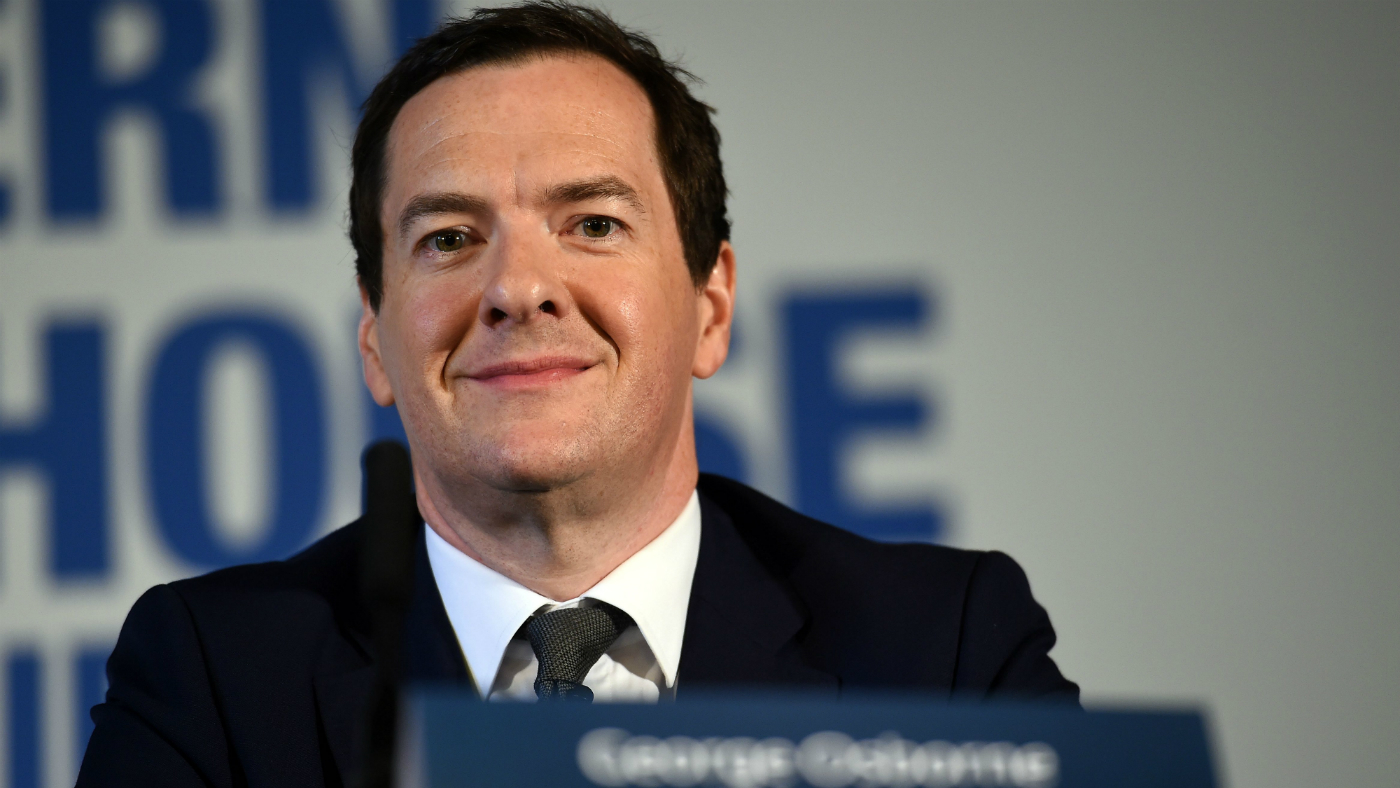 What is the Northern Powerhouse?
What is the Northern Powerhouse?In Depth George Osborne’s think tank was designed to devolve power and boost the North’s economic output
-
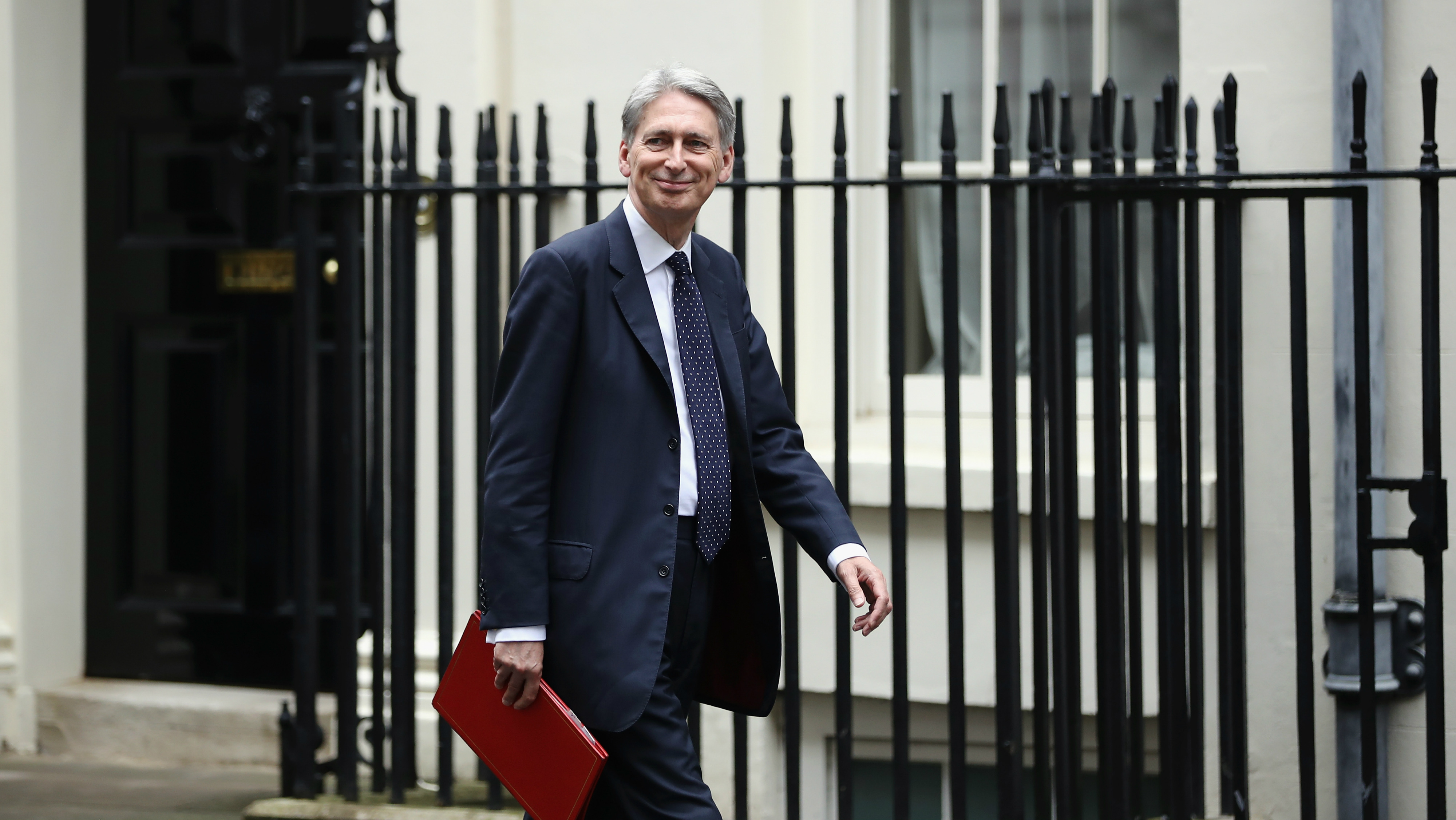 Hammond to announce departure from Osborne policies
Hammond to announce departure from Osborne policiesSpeed Read Chancellor to tell Tory conference 'we must change with the times' in move away from predecessor
-
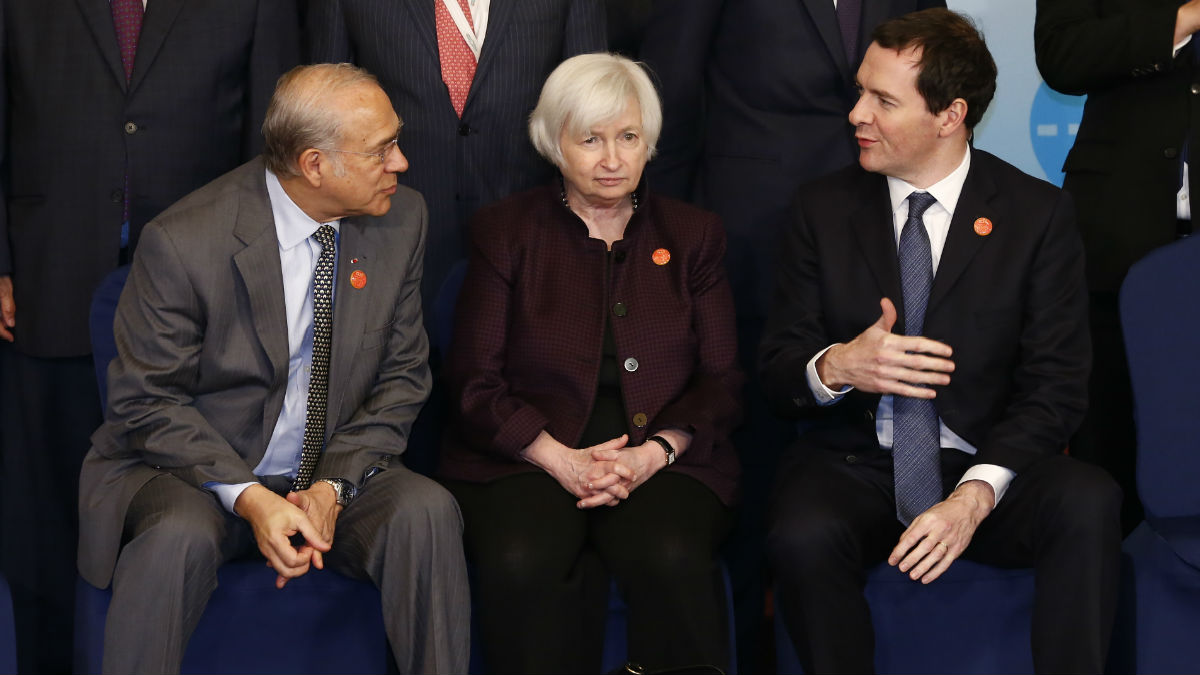 Budget 2016: is George Osborne about to make more cuts?
Budget 2016: is George Osborne about to make more cuts?In Depth Chancellor hints at further austerity measures during interview at G20 meeting in China
-
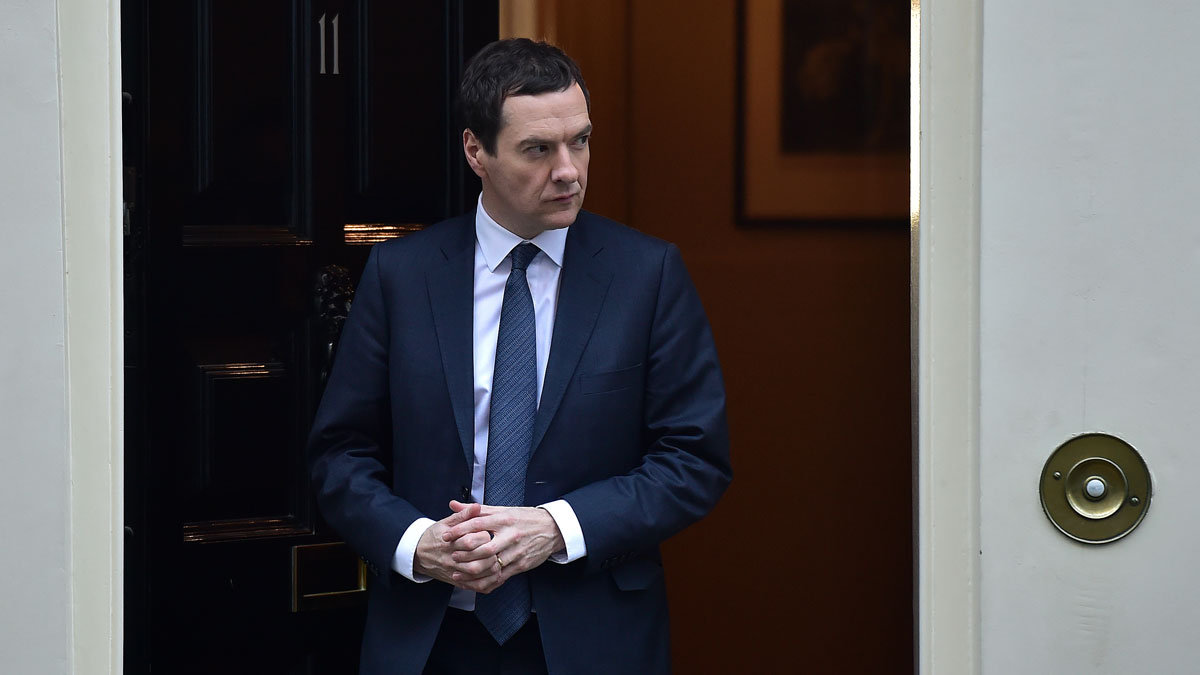 Budget 2016: Osborne in line for another £20bn+ windfall
Budget 2016: Osborne in line for another £20bn+ windfallSpeed Read Lower debt servicing costs could offset weaker tax revenues as a result of market turmoil
-
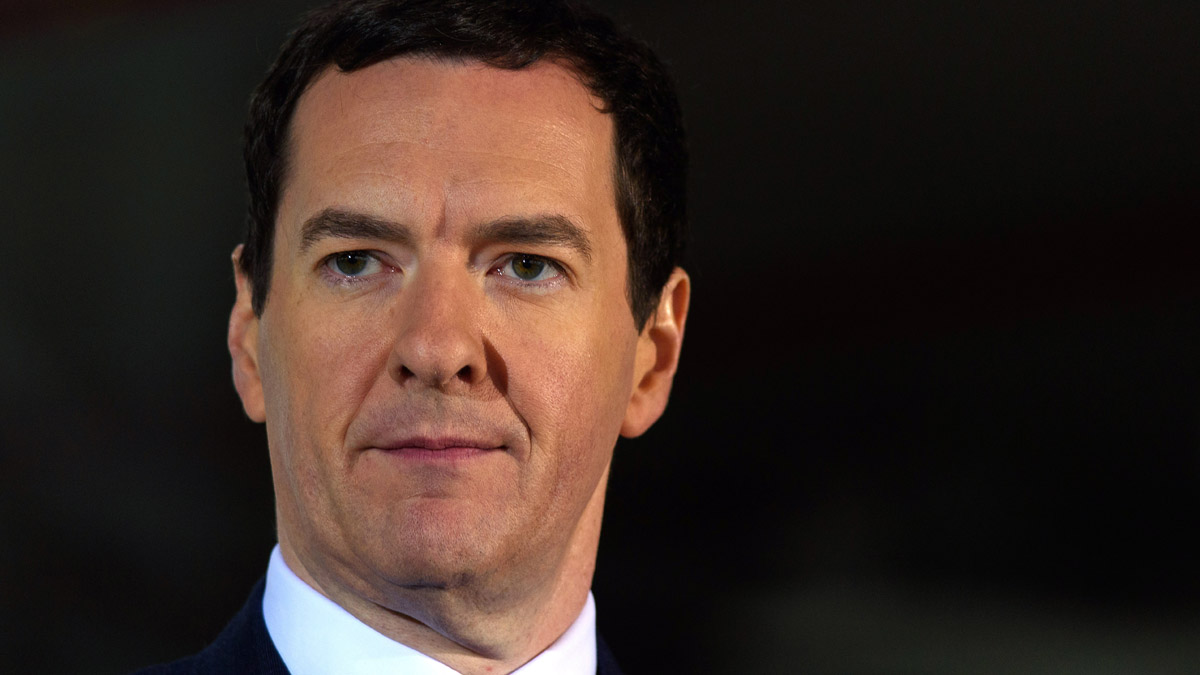 UK growth to surge in spite of global turmoil
UK growth to surge in spite of global turmoilSpeed Read Consumer spending will help country remain insulated from global trade headwinds, says forecaster
-
 Osborne makes fresh case for austerity in warning over 'cocktail' of risks
Osborne makes fresh case for austerity in warning over 'cocktail' of risksSpeed Read World Bank also sounds alarm over "perfect storm" of worldwide economic problems.
-
 Autumn Statement 2015: McDonnell offers advice to 'comrade Osborne'
Autumn Statement 2015: McDonnell offers advice to 'comrade Osborne'Speed Read Shadow chancellor has a 'Chairman Mao moment' in his response